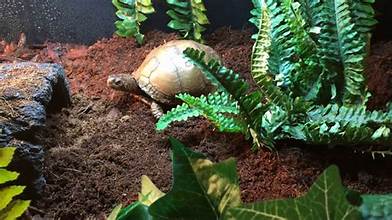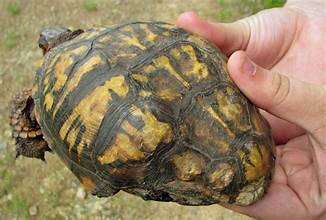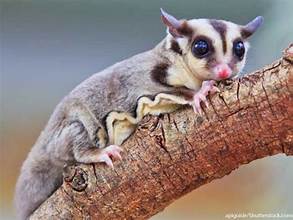The Eastern Box Turtle is a beloved species among reptile enthusiasts. Known for their unique, dome-shaped shells and gentle nature, these turtles can make rewarding pets for those willing to meet their specific care needs.
Understanding the Eastern Box Turtle
Eastern Box Turtles are terrestrial species native to the eastern United States. They are known for their colorful, high-domed shells, which vary from brown to black with yellow or orange patterns. Given proper care, these turtles can live for several decades, often exceeding 50 years. Due to their long lifespan and specific needs, you must be prepared for a long-term commitment.
Eastern Box Turtle Habitat Needs
Creating a suitable habitat for an Eastern Box Turtle is crucial to their well-being. These turtles thrive in environments that mimic their natural surroundings:

Outdoor Enclosures:
An outdoor enclosure is ideal if you live in a climate similar to the turtle’s natural range. The enclosure should have plenty of space (at least 4×4 feet) with access to shaded and sunny areas. Ensure the enclosure has secure fencing to prevent escapes and to keep out predators.
Indoor Enclosures:
For those who cannot provide an outdoor habitat year-round, an indoor enclosure with a substrate of organic soil, mulch, or coconut coir is necessary. The enclosure should be spacious and contain at least a 40-gallon terrarium. To create a stimulating environment, include hiding spots, logs, and non-toxic plants.
Temperature and Humidity:
Always be sure to maintain a temperature gradient in the enclosure, with a basking area of 85-88°F and a more relaxed area of around 70°F. Humidity levels should be between 60% and 80% to replicate their natural habitat.
Dietary Requirements of Eastern Box Turtles
Eastern Box Turtles are omnivores, requiring a varied diet to stay healthy:
Fruits and Vegetables:
Always offer a variety of vegetables, such as leafy greens, carrots, squash, and fruits, such as strawberries, blueberries, and melons. Avoid citrus fruits and avocados, as these can be harmful.
Protein Sources:
Include protein in the form of earthworms, snails, crickets, and mealworms. Occasional feeding of cooked lean meats or high-quality commercial turtle food is also beneficial.
Calcium and Vitamin Supplements:
Dust food with calcium powder and provide a cuttlebone in the enclosure to ensure the turtle receives adequate calcium. Vitamin D3 supplements are also essential, especially if the turtle does not regularly have access to natural sunlight.
Health Concerns in Eastern Box Turtles
Proper care and monitoring are essential to prevent common health issues:
Respiratory Infections:
Incorrect humidity levels or temperatures often cause these. Signs include wheezing, nasal discharge, and lethargy. If you notice these symptoms, consult a reptile veterinarian promptly.
Shell Rot:
Shell Rot is an infection caused by a fungal or bacterial infection, which appears as soft, discolored, or foul-smelling patches on the shell. Good hygiene and a clean enclosure are crucial to prevention.

Parasites:
Regular fecal exams by a vet can detect internal parasites, which may require treatment. Mites and ticks can also be an issue, particularly in outdoor enclosures.
Eye and Skin Issues:
Swelling, discharge, or cloudiness in the eyes can indicate vitamin A deficiency or infection. To prevent these issues, ensure a balanced diet and maintain proper enclosure conditions.
Temperament and Handling
Eastern Box Turtles are generally docile and can become relatively tame with regular, gentle handling. However, they prefer moderate handling and can become stressed if over-handled. You must wash your hands before and after handling to prevent the spread of bacteria.

Legal Considerations
Before acquiring an Eastern Box Turtle, you must check your local laws and regulations. In some areas, these turtles are protected, and capturing them from the wild may be illegal or require a permit to keep them as pets.
Conclusion
Eastern Box Turtles can make fascinating and rewarding pets for those willing to meet their special care requirements. With a suitable habitat, a varied diet, and regular health check-ups, your turtle can live a long and healthy life. Owning an Eastern Box Turtle is a long-term commitment, so be sure you’re ready for the responsibility.
By providing proper care, you’ll ensure your turtle’s well-being and enjoy the unique experience of caring for one of nature’s most intriguing creatures.
Disclosure: This page may contain an affiliate link to Amazon.com. We might receive a commission if you follow them and purchase anything from the recommended products. I can assure you that I never recommend anything I don’t trust. Thanks for supporting positvelypets.com!



